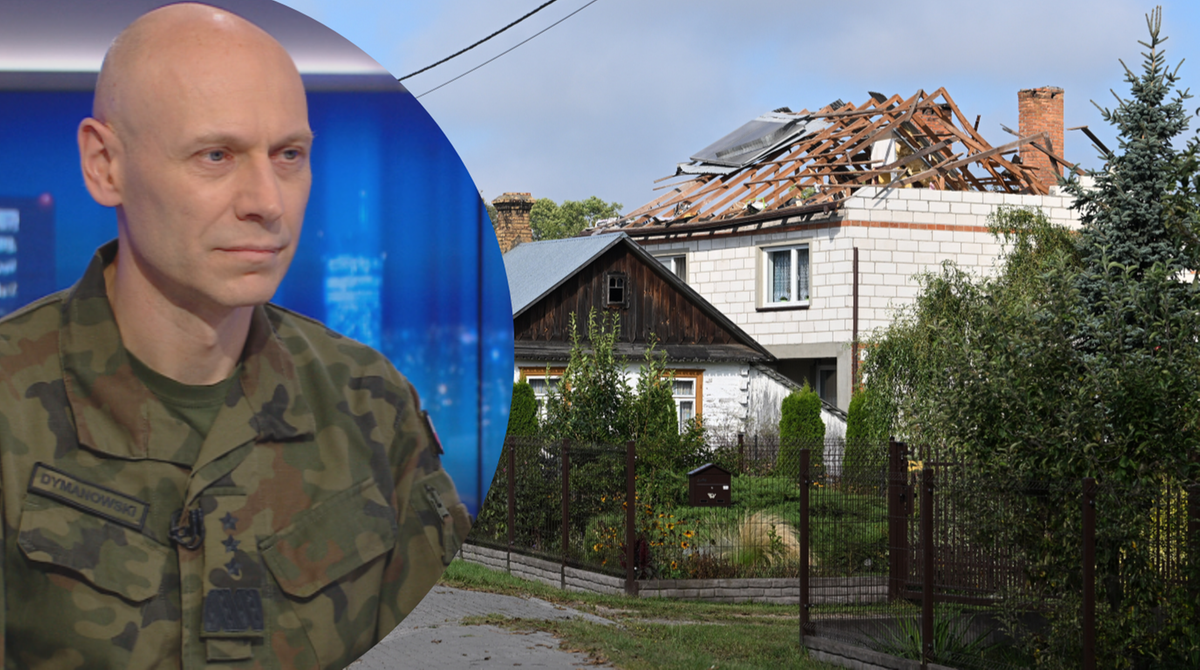The same as the master Buja, the same as the Lion – Aleksander Szumański
The night train of the 3rd class, in the curitary it it,
She character breed class, he is from Vilnius – chic – bon tone!
I mean, I love you! It's like he's smelling meat,
She's in the ear, she's listening, abruptly she's laughing loudly!
The 1 you rock, the 1 from Lviv!
Oh, come on, I know how to do that!
I'm behind the wall!
I have experience in matters of the heart!
The 1 who loses his word!
If you love me, what are you gonna do?
Come with me to my lion.
And before that, you marry me.
Emanuel Szlechter, the author of the text and Henryk Wars of music, most likely did not presume that they created 1 of the biggest hits of Lviv, a radio hit “Welly Lviv Fala” created in July 1933 by Viktor Budzyński, and aired on Radio Lviv until September 1939.
Emanuel Szlechter a prominent figure, known and unfortunately forgotten by contemporary.
Emanuel Szlechter (Eman Schlechter) (born 26 March 1906 Lviv, died in 1943 during the liquidation of the Lviv ghetto) – Polish screenwriter and songwriter, many of whom have become large hits.
Author of the lyrics of memorable movie hits to which the music was written by Zygmunt Karasiński and Szymon Katasko (Everybody is allowed to love, 1933), Jerzy Petersburski (a waltz "Youth to be and more nothing" from the movie "Happy Thirteen", ex: Lucyna Messal , tango "A small happiness in love" from the movie "What My Husband Does at Night", ex: Tola Mankiewiczówna, 1934), Henryk Wars: "Such Something" and "It's Not You" from the movie "Your woman of the chauffeur" (ex. Tadeusz Olsza), "U di radi radi rida" from the movie "Antek policmayster" (ex. Adolf Dymsza, Dodek, 1935), "I've dated her for the ninth" and "Sex appeal" from the movie "The level Higher", (ex. Eugeniusz Bodo, 1937), the seal "The Infatuated Thief" from the movie "Robert and Bertrand", the tango "Whether Miss Agnieszka lives here" and the drunken fighter "The Best head to Have Noise" from the movie "The Hultarian Trinity" (1937), songs from the movie "The Queen of the suburbs" (1938).
another well-known lyrics of the songs: “A me siup” (from the movie “Dodek on the front”, ex: Adolf Dymsza), “I request a word” (from the film” Love only me”, ex: Lidia Wysocka), “Love, likes, respects”, (Muz. Henryk Wars), “I have time, I will wait” (Muz. Mieczysław Mierzejewski, 1935), the English waltz “Not once, not twice, not three” (Exam. Albert Harris), the muz. Adam Lewandowski) and the tango “Szkoda lat” (Exam. Andrzej Bogucki, 1937,muz. Adam Lewandowski), the song by Stefci Górska (No Exaggeration), the music by Zygmunt Wiehler and Zofia Terne (“So small” by Henryk Wars), as well as the libretto of the musical comedy “Kot in a Work”.
Lvov songs: “The 1 that you rock!” (Muz. Juliusz Gabel), “My Guitar” (“Singed Lions”, muz. Wiktor Tychowski and Eugeniusz Landowski, a evidence released just before the outbreak of the war, 1939) and movie songs by a pair of Lviv batiers, Szczepcia and Tońcia (example Kazimierz Wajda, 1905-1955, Henryk Vogelfänger, 1904-1990, from the radio “We Happy Lviv Fala”): “We 2 – Both Cwaj” (from the movie “Be Better”, dir. Michał Waszyński, 1936), “Goodnight, Oczka napruż” and “Only in Lviv” (from the movie “Węczęgi”, 1939, muz. Henryk Wars), later sung by soldiers of General Władysław Anders around the world. The song “Only in Lviv” became the anthem of the lions forced to leave their hometown.
The movie “The Heart of the Batiare” , to which Emanuel Schlechter wrote the title song (Muz. Henryk Wars, 1939) did not get on screens and disappeared during the war.
Emanuel Szlechter was a Pole of judaic descent.
Is it worth to revive the forgotten Lviv hits, which are a forgotten component of Polish culture?
It turns out that not only is it worth it, but there is simply a need. This was proved by the Foundation for the Restoration of Kresowa Culture / president Karol Wróblewski / , organizing in Krakow all year the National Festival of Lwowska Songs and Lwowski Balls.
Festival concerts are held in various Polish cities, including Warsaw. After all, there is simply a affinity for the Warsaw and Lviv songs. Although these songs were created in different periods and had different goals, 1 thought – Poland – is connected.
The Warsaw song almost exclusively anonymous, during the Nazi business it was a non-bagate weapon in the fight against the occupier. In these dark years it was sung “all over” by Warsaw, like “.ax of the hoe brush alaash/ lost the war stupid painter.”
The Lviv song created by renowned artists specified as Marian Hemar, Henry Wars, Emanuel Szlechter, or Jerzy Petersburski/the creator of the celebrated "Tang Milonga"/ was besides akin to the Warsaw song anonymous, a street song. The Lviv song formed until tragic September 1939 and maintained a high-level end culture.
The Warsaw street song was created after September 1939 in a known intention. The song of Lviv was sung not only by “the whole” of Lviv, but besides by all Poland, as he described in 1 of his celebrated Lviv publications Jerzy Janicki – “The full Lviv on my head”.
Stanislaw Wasylewski wrote: "...in this revue of wonders of various homelands, given by nature, built by man, what you can boast, the city is the only 1 – the Bernard clock, the Lublin Union Mound, the vows of King John Casimir at the feet of the Virgin, the emeralds of trees, the Czartowska Skała, or what has thrown into our artistic independence, in theatre, on the easel, the artist's pencil, the efforts of the writer, the soldier's act – or possibly the "first" /original writing / this cemetery of peasants, who is your stone and Wawel, Westminster and Thermopils. Or possibly the praise of strangers, due to the fact that this 1 pays the most, is the saying of Marshal Foch, who said during his stay in Lviv: “when the borders of Europe were crossed out, worrying about what the borders of Poland were, Lviv answered with a large voice – Poland is here”!
Lviv was the first and only Polish city in the Second Republic to be decorated with the Knight's Cross of the Order of Virtuti Militari. The ceremonial decoration was performed on 22 November 1920 in Lviv by Marshal Józef Piłsudski.
This is the highest Polish military award given to a heroic city, which inactive proudly bears the motto “Semper Fidelis” In the full past of the order, apart from Lviv, only 2 another cities received this honor – Warsaw and Verdun.
Did the musicians always sing in Lviv?
But yes, for the next time, a large audience arrived on 11 March 2011 at the 5th National Festival of Lwowska Song and Lwowski's Balak Kraków 2011. The festival performance was held for the first time in the hall of the Officer's Casino at 1 Zyblikiewicza Street in Krakow.
1 of the most interesting objects of the late 19th century and early 20th century is the building of the Officers' Casino – now the Military Cultural Centre in Krakow. It is simply a neo-Renaissance building with the character of an Italian villa.
The Officer's Casino building was designed by the well-known Kraków architect Tomasz Pryliński in 1889, awarded the Order of Franciszek Józef in 1892 for the “most tasteful building in Krakow”.
This typical building hosted many prominent personalities from the planet of politics, culture and business. There was a permanent gathering place of Marshal Józef PILSUDSKI with the authorities of the city of Krakow and with the army.
The celebrated cabaret theatre “Seven Cats” starring Irena Kwiatkowska, Jerzy Jurandot, Stefania Grodzieńska, Konstanty Ildefons Gałczyński, Karol Szpalski, Marian Załucki, Jerzy Bieleni besides performed here in the post-war period since 1945. Here, too, Steven Spielberg recorded a fragment of the movie Schindler's List at a German restaurant.
Balakowa, sentimental song by Marian Hemar "There are cities, there are so many stars" or "Boston o Lwów" festival performance was to be opened by Wiktoria Zawitowska, a associate of all erstwhile editions of the festival / since 2007 /, winner of the main prize of the festival Kraków 2009.
It was expected to open, but it did not open, due to the fact that I was mistaken in the announcement announcing Wojtek Habela, who was to play the song by Viktor Budzyński "Wio on ft to Lviv".
So the joyful audience began to prepare for a walk and even asked questions from the hall if we could inactive be back at the end of the concert. Well, there are 2 or 3 steps from Krakow in the consecutive line. I was determined, and I was not helped by the discouraging sigh of my wife “this fear of God! frost outside.” What makes me cold, I to Lviv want already.”
The manager of the festival, the president of the Foundation for the Restoration of Kresowa Culture Karol Wróblewski was besides amazed by the change of script, as a gentle man did not halt the general enthusiasm, but asked: “And Victoria Zawiskowska besides goes on ft to Lviv”? She was expected to sing a song by Marian Hemar “Boston about Lviv”? Only sparrows on the roof of my building at 25 Legionów Street in Lviv know how the full festival chaos of Kraków 2011 ended.
Only at the end of the performance Wojtek Habela asked me: “Alek, were you chirny”?
And so mediocre Victoria Zawitowska yet got on stage, where she masterfully sang the announced “Boston about Lviv”. The audience's applause continued for the previously announced song “Wio on ft to Lviv”, which was sung by Wojciech Habel and accompanied by the band “Chawir”.
The name of the band “Chavira” comes from the folk bustle of the south-eastern ends of the Second Republic and means a warm household home.
Founded by Karol Wróblewski / accordionist and vocalist / band was formed in 2003.
The band's repertoire intent was to popularize Polish songs from the interwar period, with peculiar emphasis on end songs, patriotic songs, as well as planet songs from the first half of the 20th century, including jazz songs. After many concerts of the band, the Chavira Border Society became active with the president Czesław Karlińska aunt “Bandziuchowa”.
The band performed not only in the country but besides abroad in Vienna, Linz, Budapest, Nuremberg. In 2006 he was awarded the “Golden Leave” for his full activity at the National Festival of Retro Songs named after Mieczysław Fogg in Krakow.
After all, the Lwowski balak is nothing but a suburban brawl. The word balak does not appear in the dictionaries of correct polish, nor will we find it in encyclopedias. And yet, it is simply a circumstantial language on the permanent past of our speech.
Media, most likely besides historically, the language of the balac was created thanks to the authorship of Viktor Budzyński, and so was the celebrated “Merry Lviv Wave”. The first regular, weekly, half-hour amusement broadcast by the Lviv Radio station was broadcast on 16 July 1933, which was 78 years ago.
Tońcio and Szczepcio were the main users of this broadcast.
Tońko (Henryk Vogelfaenger – Warsaw's lawyer and Szczepcio (Kazimierz Wajda) – an unfinished engineer created a duo in the broadcast of the Lviv radio “Wesola Lwowska Fala, ” which went to the classics of Lviv's batiar song, or the Kinderian song – as anyone would like. It is worth mentioning that they were the first to compose media and movie / feature / Lviv balak. The loudest of their films are “Voicers” and “Better Better ” (repeated respective times in fresh years on Polish television).
What connected them characterically – it was goodness, tenderness, doves straight in the heart, in short, "the heart of a whip". This was besides the title of their 3rd film, which never made it to the screens, due to the fact that made in late summertime 1939, it burned down immediately in the first days of the war.
In the performance of Wojciech Habeli and Karol Wróblewski with the band's companion, Chawir, we heard Emanuel Szlechter's song – words, Henry Wars – music – “We 2 Węcwaj” from the movie “It Will Be Better ” / in Lviv “Bedzi Lepi”/ shot in 1936 with participation of Tońcia and Szczepcie. The song was recorded on records and distributed on the radio as a popular foxtrot – a polka. shortly it was sung by the Lviv street, followed by “all” Poland. erstwhile the “Merry Lviv Wave” began its weekly radio broadcast, discussions, flirtations, quarrels, home activities, or loud conversations were the rank of the experience. The children failed to rest, did not do their homework at the time, and the brides stopped kissing.
Here are the fragments of this song:
“Remember you, Tońku!
Tell me, Clement, tell me what?
That's useful to you,
'Cause remember, there's no large deal,
But pininundz, it's, it's bad luck, oh!
If you have money, you'll get it.
This is what the king,
Lives, drinks, and adds up,
Kuzdyn's on him.
And erstwhile the abrupt money runs out,
Zara will finish the full ball,
Stenka, quenka, and she'll give it to him.
I'm sorry for your money.
And the 2 of us, both of you.
We have nothing and we have paradise!
Nothing will do us evil,
Why don't you lose it?
Who's got money, who's got balls,
Friends have, all have,
He's cooking, living, drinking with him.
It's only possible.
And erstwhile the abrupt money runs out,
Then there are dogs hanging on him,
Nobody knows him, nobody loves him.
That's not what we are!
due to the fact that the 2 of us,
There's no specified thing as a full country,
We two, ohoho!
It's like a 100 others!
And what happened to that song? Next? No, you're not! Just what?
Yeah ” We 2 ohoho! It's like the another hundred.”
The time has come for the presentation of the master of the song, not only of Lviv, Franciszek Makuch, soloist of Kraków opera and operetta. Before entering the phase he was stremmed / as everyone / and asked:
“ Alek, don’t say anything about me, just give me the name “. Of course, he was right, but his name speaks, so no oration is necessary. However, not following the decision of Mr Francis, I repeated what I wrote about him in a erstwhile correspondence from the "III Festival of Lwowska Songs and "Balak of Lviv":
"...the very master of the song, vocalist / vocalist about Lviv /, temporarily singing in Krakow about Lviv, soloist of opera and operettas in Krakow, Franciszek Makuch". How Mr. Francis sang 2 compulsory songs ” Boston about Lviv ” by Marian Hemar and ” My dream about Lviv ” Wanata and Jerzy Kopinski, it just got started with a fewer songs, changes in voice, clothes, hats, and most likely hairstyles, everything as it were, as it were, the master. And the audience? She did not want to release him from the stage, just as before Wojtek Habela, who was in Lviv on imitations with Feliks Konarski and sang: .. “The engineer “S” set 3 curtains on fire.” / ” organization in London ” Feliks Konarski” /, on which I suffered most in my speech with an accident / planned? /.
Of course, I was entitled to make amends, this time with the author's tears, consecutive from Radio Lviv – February 2011, where he presented himself to Mrs. Editor Ania Gordiyevska, under the patronage of Mrs. president of Radio Lwów Teresa Pakosz, and in the absence of / a show without her cognition / my boss, editor of the “Lwowskie Meetings ” of Bożena Rafalska:
fresh ANCUG
It was bought by sy angug new
And to my hulam baby
Dried banana liqueur
Babie gives her gravedigger
And I'm putting on any good stuff.
A fresh part of work on the boat
Baba's laughing
I'm flying in the carousel.
Scissor
Babe in the sand
And a bright angel
♪ Cock in the mouth ♪
Baba in the balac
'Cause I'm the 1 who's gonna burn you.
You'll have a broken cinema.
You've been playing all Sunday.
Underneath the church you're bending graves
Before you go to yours, you're slapping a baby
small by small until the end
If you get high, you'll start over and over again.
It'll make you feel better.
Then you will meet Antka Ziółko
An antique you're playing on the nerves
And you're making a fool of yourself.
I'm Manka, not playing
With us aus I talk equally
Yokas, you're giggling.
I'm sorry.
And you're tycooning me
Me with you like in heaven
An antique you're a breeze
What's the substance with you?
Ancug fresh crushed
How you're inactive under your hat
It was bought by sy angug new
And to another hulam baby
What on the corner of the Merchant
He's out of a shoe.
Rach chop, chop
Babu in the sand
And a bright angel
♪ Cock in the mouth ♪
erstwhile Victoria Zawitowska, accompanied by the band, Chavira, convinced with a song from the repertoire of Zula Pogorzelska. ” In his work we heard the song “Lwowski blues” by Irena Paprocka, a young artist's parent singing with her accompaniment, and then, then, “The Orlbaby ” by Artur Oppman / Or-Ot /. This moving song dedicated to the Lviv Orlęts always causes emotion and even tears. This time, the young artist's audience didn't want to let go so quickly. Bravo wasn't over. The boy himself was moved as his parent Irena Paprocka, at the same time an artist's accompanist and, of course, an artistic guardian of this developing talent.
Girly, graceful and modest Dominic Pater of Chrzanów, already an excellent vocalist and vocalist – a student of Irena Paprocka with her accompaniment sang “ Faithful Madonna” by Jerzy Michotko and “Preclar from Pohulanka” by Viktor Budzyński. The young Dominic was bidding, the applause was endless.
erstwhile I expected a schmunky temper change, erstwhile stupid Icek gets a second and 3rd time in the face from knowing daddy for not going to be Rubinstein who goes to have a 100 1000 dulars in the bank, unexpectedly, unpromised appeared on phase Francis Makuch and Wojciech Habel in solemn rabbinic outfits, taken alive from Horace Safrin “By Shabbas Candles” and began a schmund dialogue, completely ignoring “Rubinstein ” with Ick and Daddy together.
At this point, it should be recalled that the celebrated performer of the nevertheless celebrated Rubinstein “is Wojciech Habela, who is the master of the semblance of the Hansedrees from the Lviv “Krakidala”.
While they were going to talk about their “cures” / problems / banking and commercial, and talking over and over again about counting money, I remembered another dialog duo from the radio “Happy Lviv Fala ” – Aprikozenkranza and Untenbaum, in which they masterfully impersonated Mieczysław Monderer and Adolf Fleischen. To this day, the mystery remains whether the Aprikozenkranz and Untenbaum were Jews, or authentic Jews from the Krakidalas, “speaking nothing but scum all day.
During prayer, the compulsory component of the Jew's outfit is:
Jarmule (kits) – a circular cap made of six wedges of material, which is simply a sign of respect for Jehovah, must besides be worn during the survey of the Torah,
tales (talite) – a white scarf with black or blue stripes and fringes, with the most crucial fringe in 1 of the corners where knots are tied; the tales can besides be equipped with an atara – a belt about 1 m long and 6 to 12 cm wide, frequently beautifully embroidered. Only married men are entitled to wear the tales. Since Habela and Makuch are married, they were entitled to the outfit they performed in. However, they do have wives of goys, so I'm not so certain about these powers.
Goj (Hebrew = nation ) – a word appearing repeatedly in the Torah, most frequently translated as “nations” or usually non-Jews, individual outside the nation of Israel. any translations of the Bible ignore the word goj and replace them with the word “nations”, e.g. in the Millennium Bible (Genesis). “They come from the inhabitants of the coasts and islands, divided by their countries and their language, by their tribes and by their nations.” In the track, the word goj appears 550 times.
Szmonces is different from the balak of the noise, not only Lviv, which is simply a patchwork of non-orthographic and non- grammatical Polish, a paraphrase of Yiddish and German languages. Szmonces besides has his media evidence in the lyrics of the Lviv Fala, “which, like in Tońcio and Szczepcio, he played in masterfully another dialog duo I mentioned. The master of lipstick was besides Lopek / Kazimierz Krukowski /, look, look, a boatman.
Shmonce texts are mostly known as Konrad Tom's already celebrated “Stock” presented inherently in the cabaret “Dudek” by Edward Dziewoński and Wiesław Michnikowski, or the completely forgotten “Kosherny kozak”, judaic stories by Stefan Wiechecki, or Wiecha, awakening enthusiasm, readers and listeners. Let me give you any of the titles “Cosher Cossack”:
‘Trout in court. Jews in the hole. Suicide in the bathtub. Head under the bed. small Gigolo. The secrets of the boudoir. Flirt with a stammer. A flea in a tram. A execution of mercy. Rudy Icek under the bed. Handrees ante portas. Chopped liver. Rhymes in the goy. Dead on the phone".
judaic jokes are besides known, mostly funny, specified as 2 handlees, 1 of which kept counting money. The another 1 who wants to get first off the number says: Look at Moniek across the street, what a beautiful girl is going, I slept with her that night. U wa – heard in consequence – if I wanted to sleep with her all day, this is my wife.
In the passage to the gate of the tenement home at 25 Legionów Street, where I lived, there was a persistently old hebrew selling supposedly elastic white jegier underpants, advertising them through a staged stretching with a smoldering call – prof. jegier, prof. jegier,
– on “Krakidały”, besides the old hebrew sold colorful postcards depicting the frightened bearded and pejsate A hebrew with a roaring lion on his left, and a fire on his right. The signature under the image was:
“ This hir, this hir, ” which means in Polish: ” neither there nor there “. The postcards were going like water.
"The Happy Lviv Wave" was created by a councillor Take a look at the individual of the master Wilhelm Korabiowski and present-day champion, Vlad Majewska, created of course by Viktor Budzyński.
Ada Sadowska, Theodosia Lisiewicz, Love Short, Czesław Halski, Juliusz Gabel, Alfred Schutz / creator of music for “The Red Macs at Monte Cassino ” with lyrics by Felix Konarski /, Tadeusz Seredyński, Zbigniew Lipczyński, Izidor Dąb – I remembered so many.
See you in Warsaw next month.
Alexander Szumański
ed Lviv
temporarily in Krakow















![’Mistrzu, zwolnij’ – policyjna akcja profilaktyczna [zdjęcia]](https://tkn24.pl/wp-content/uploads/2025/09/Mistrzu-zwolnij-2.jpg)
